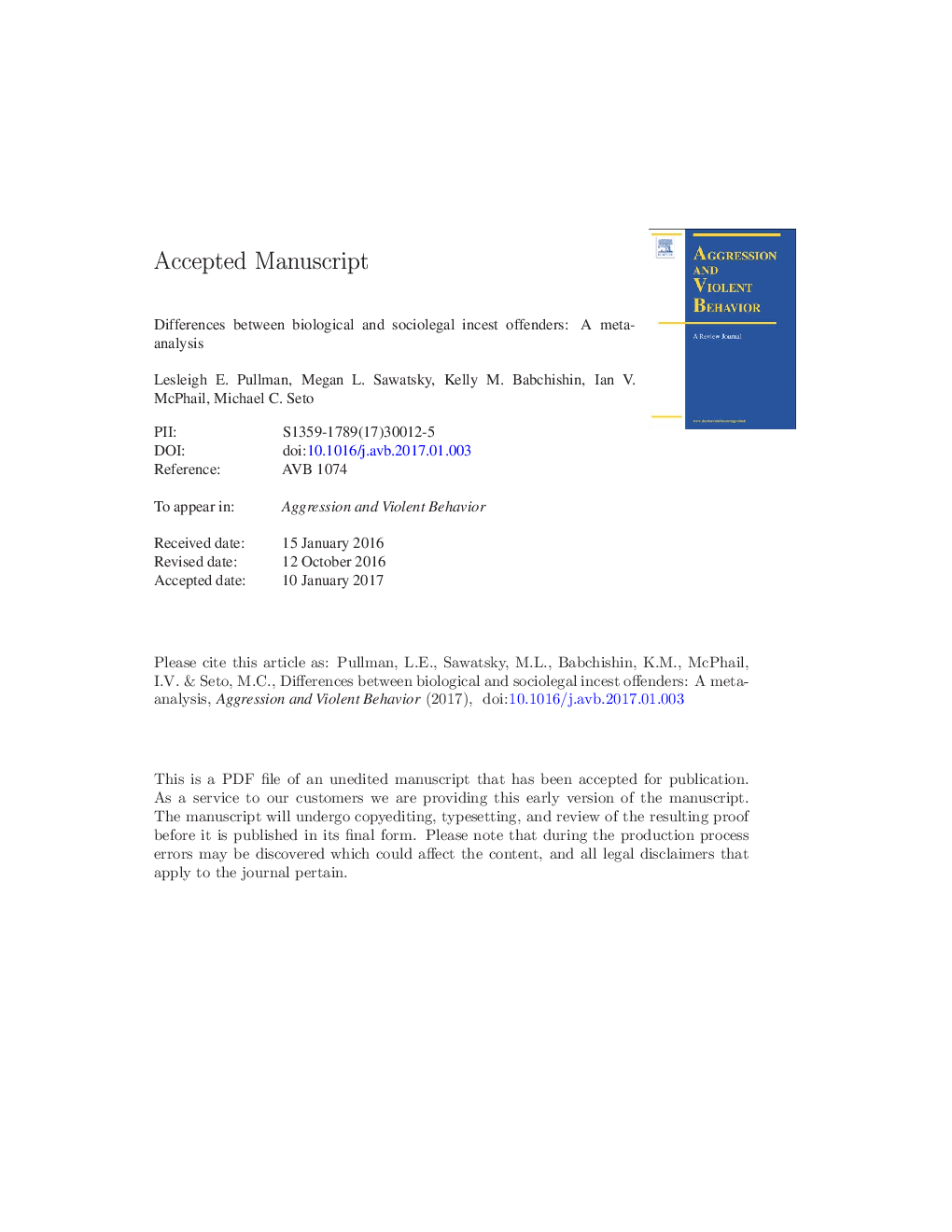| Article ID | Journal | Published Year | Pages | File Type |
|---|---|---|---|---|
| 4760113 | Aggression and Violent Behavior | 2017 | 44 Pages |
Abstract
There is an important theoretical distinction between biological and sociolegal incest offenders, but this is not always recognized in clinical or empirical work. The purpose of the current meta-analysis was to examine the extent to which biological and sociolegal incest offenders differ on a number of theoretically or clinically relevant domains. We compared a total of 4192 biological incest offenders to 2322 sociolegal incest offenders across 27 samples that were disseminated between 1984 and 2012 (Mdn = 1993). Sociolegal incest offenders exhibited more antisocial tendencies (general self-regulation problems, impulsivity, drug and alcohol problems) compared to biological incest offenders. Biological incest offenders exhibited more psychopathology (repression, mental health difficulties) compared to sociolegal incest offenders. Differences were generally small to moderate in magnitude. Contrary to expectations, there were no meaningful differences between groups on atypical sexual interests (ds ranged from â 0.09 to 0.11), though sociolegal incest offenders were more likely to have sexual self-regulation problems. One meaningful moderator emerged: whether the biological incest offender group was composed only of biological fathers or of both biological fathers and other biological relatives (e.g., uncles and grandfathers). The theoretical implications of these results are discussed, and areas of future research are highlighted.
Keywords
Related Topics
Health Sciences
Medicine and Dentistry
Forensic Medicine
Authors
Lesleigh E. Pullman, Megan L. Sawatsky, Kelly M. Babchishin, Ian V. McPhail, Michael C. Seto,
